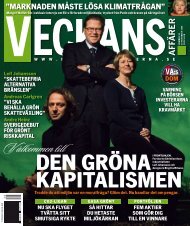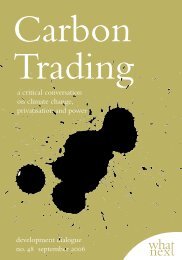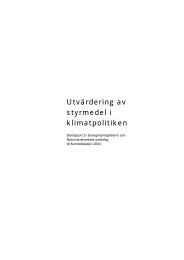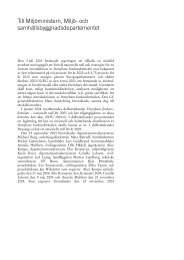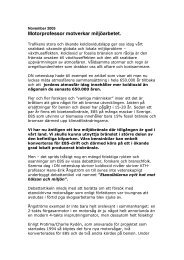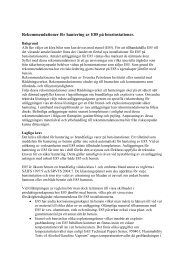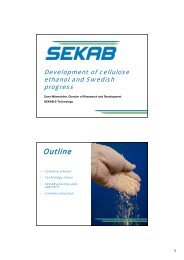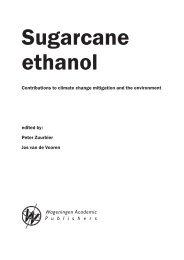Production and use of fuel ethanol in Brazil - BAFF
Production and use of fuel ethanol in Brazil - BAFF
Production and use of fuel ethanol in Brazil - BAFF
Create successful ePaper yourself
Turn your PDF publications into a flip-book with our unique Google optimized e-Paper software.
28<br />
decision. In most commercially available models, f<strong>in</strong>ish configurations <strong>and</strong> optionals<br />
w<strong>in</strong>d up hav<strong>in</strong>g an impact on the price, <strong>in</strong> monetary terms, much higher than that<br />
<strong>of</strong> the differentiated IPI rate. Such differentiation is but an attempt to <strong>in</strong>ternalize <strong>in</strong><br />
the market price the environmental benefit provided by a vehicle that runs or can<br />
run exclusively on <strong>ethanol</strong>.<br />
c) Flexibility <strong>in</strong> sugar <strong>and</strong>/or <strong>ethanol</strong> production<br />
There are those who say that produc<strong>in</strong>g sugar <strong>and</strong> <strong>ethanol</strong> at the same time makes<br />
the <strong>Brazil</strong>ian sugar artificially more competitive, thereby benefit<strong>in</strong>g manufacturers<br />
<strong>and</strong> susta<strong>in</strong><strong>in</strong>g the country’s presence <strong>in</strong> the <strong>in</strong>ternational market for the product.<br />
We must bear <strong>in</strong> m<strong>in</strong>d, however, that what goes on with <strong>ethanol</strong> <strong>in</strong> <strong>Brazil</strong> is not<br />
different than what goes on <strong>in</strong> all other sugar-cane economies <strong>in</strong> the world whenever<br />
the sugars conta<strong>in</strong>ed <strong>in</strong> the molasses are sold. The only difference is the product <strong>in</strong><br />
question. In <strong>Brazil</strong>, the sugars conta<strong>in</strong>ed <strong>in</strong> the molasses are transformed <strong>and</strong> sold <strong>in</strong><br />
the form <strong>of</strong> <strong>ethanol</strong>, currently obta<strong>in</strong><strong>in</strong>g a variable <strong>in</strong>come, which varies accord<strong>in</strong>g<br />
to market fluctuations.<br />
Produc<strong>in</strong>g sugar <strong>and</strong> <strong>ethanol</strong> from the same raw material (sugar-cane) <strong>and</strong> at the<br />
same time is now exclusively a bus<strong>in</strong>ess option <strong>in</strong> which the government has no<br />
participation.<br />
In reality, even though <strong>ethanol</strong> <strong>and</strong> sugar prices <strong>in</strong> <strong>Brazil</strong>’s domestic market are<br />
determ<strong>in</strong>ed by free market <strong>and</strong> competition rules, given that the <strong>ethanol</strong> market<strong>in</strong>g<br />
cycle time is much shorter than that <strong>of</strong> sugar (<strong>ethanol</strong> is produced <strong>in</strong> six to eight<br />
months, depend<strong>in</strong>g on the region <strong>and</strong> climate, <strong>and</strong> sold by producer over the twelve<br />
months <strong>of</strong> the year), the cost <strong>of</strong> stor<strong>in</strong>g <strong>ethanol</strong> reflects <strong>in</strong> its market price, <strong>in</strong> the<br />
form <strong>of</strong> a price that, on a comparable basis, tends to be (particularly dur<strong>in</strong>g gr<strong>in</strong>d<strong>in</strong>g)<br />
lower than that obta<strong>in</strong>ed for sugar.<br />
In practice, when the characteristics <strong>of</strong> the activity <strong>and</strong> the reality <strong>of</strong> the markets are<br />
taken <strong>in</strong>to account, it is the remuneration obta<strong>in</strong>ed from the sugar that makes up for<br />
the lower remuneration that is obta<strong>in</strong>ed through <strong>ethanol</strong> sales. Therefore, <strong>ethanol</strong><br />
does not generate the alleged surpl<strong>use</strong>s that would supposedly be <strong>use</strong>d to cover<br />
sugar costs; quite the opposite, it is the revenues from sugar sales that compensate<br />
for the losses result<strong>in</strong>g from the ma<strong>in</strong>tenance <strong>of</strong> stocks <strong>of</strong> that <strong>fuel</strong>.<br />
An <strong>in</strong>dustry’s diversification is not a practice condemned by the WTO, even if it<br />
leads to cost reductions. The economies <strong>of</strong> scale arise out <strong>of</strong> the very size <strong>of</strong> the<br />
domestic markets for sugar <strong>and</strong> <strong>ethanol</strong> <strong>in</strong> <strong>Brazil</strong>. Around 60 percent <strong>of</strong> the total<br />
recoverable sugar produced each crop are consumed locally <strong>in</strong> the form <strong>of</strong> sugar<br />
<strong>and</strong> <strong>ethanol</strong>.<br />
A. Fuel <strong>ethanol</strong>: Activities <strong>in</strong> <strong>Brazil</strong> <strong>and</strong> the world context



